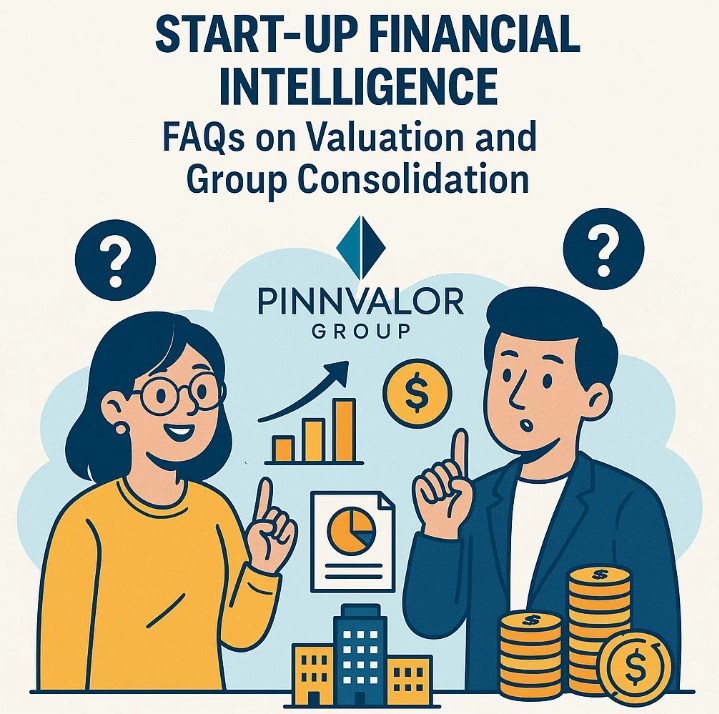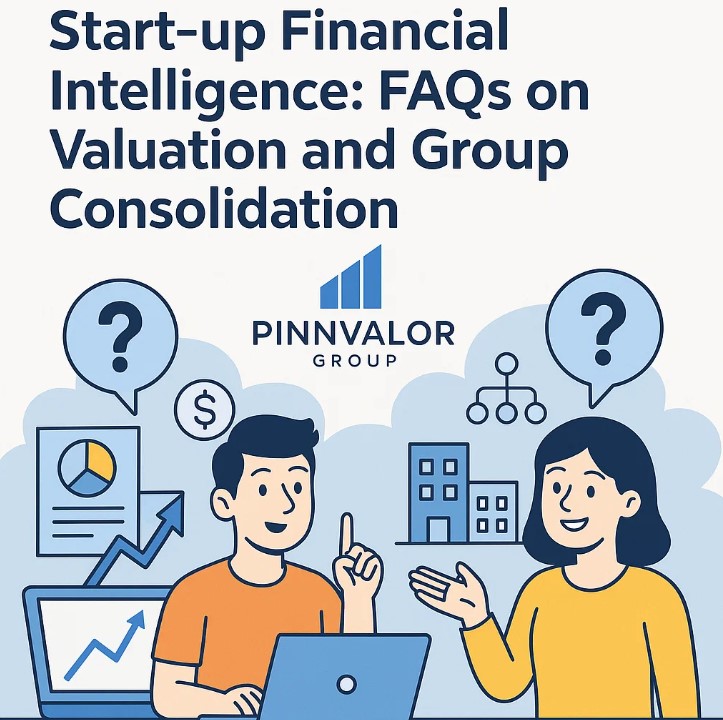
Start-up Financial Intelligence: FAQs on Valuation and Group Consolidation
In the fast-evolving world of start-ups, financial clarity is crucial for founders, investors, and stakeholders alike. Two foundational topics that often generate questions are start-up valuation and group consolidation. Understanding these concepts not only supports better decision-making but also enhances trust and transparency during fundraising and growth phases. This blog presents answers to some of the most frequently asked questions on these topics.
Is your start-up’s valuation ready for the next big leap?
A realistic valuation today prevents down rounds tomorrow, helping start-ups maintain credibility and secure stronger funding for the future.
1. What is Start-up Valuation and Why Does It Matter?
Start-up valuation refers to the process of estimating the worth of a young company. Unlike established firms, start-ups often lack stable revenues or profits, making valuation more art than science.
Why it matters:
- Determines equity distribution among founders and investors
- Influences fundraising success and investor confidence
- Provides a benchmark for growth and business strategy
2. Common Methods for Valuing Start-ups
Given the challenges in forecasting, start-ups typically use specialized valuation methods such as:
- Comparable Company Analysis (CCA): Comparing the start-up’s metrics with similar companies in the market.
- Discounted Cash Flow (DCF): Projecting future cash flows and discounting them to present value (less common due to uncertain forecasts).
- Berkus Method: Assigns values based on qualitative factors like idea, prototype, quality of management, and market potential.
- Scorecard Valuation Method: Weighs factors like team, market size, and competition relative to other funded start-ups.
3. How Does Fundraising Affect Valuation?
During each funding round (Seed, Series A, B, etc.), the valuation may change based on business progress, market conditions, and investor sentiment.
- Pre-money valuation: The company’s valuation before new investment.
- Post-money valuation: Pre-money valuation plus new capital invested.
Understanding these helps founders and investors negotiate ownership stakes clearly.
4. What is Group Consolidation in a Start-up Context?
Group consolidation involves combining the financial statements of a parent start-up and its subsidiaries into a single comprehensive report.
Why consolidate?
- Provides a clear financial picture of the entire group
- Eliminates intercompany transactions that can distort results
- Simplifies reporting for investors, regulators, and lenders

5. When Should a Start-up Consider Consolidation?
Start-ups with multiple legal entities or controlling interests (generally more than 50% ownership) in other businesses should consolidate when:
- They want to present unified financials for reporting or fundraising.
- Regulatory or auditing requirements mandate group-level financial statements.
- Intercompany balances and transactions require elimination for clarity.
6. Accounting Standards Governing Consolidation
Start-ups typically follow these standards for consolidation:
- Ind AS 110 (India) or IFRS 10 (International): Define control, require elimination of intercompany transactions, and mandate consistent accounting policies across the group.
7. Common Pitfalls in Valuation and Consolidation
- Overestimating revenue projections leading to inflated valuations.
- Using inconsistent accounting methods across subsidiaries.
- Failing to eliminate intra-group transactions during consolidation.
- Ignoring the importance of professional financial advisory.
8. How Does Valuation Impact Future Growth and Exits?
Realistic valuations help:
- Attract credible investors.
- Avoid difficult down rounds in subsequent fundraises.
- Support better negotiation for acquisitions or IPOs.
Conclusion
Mastering start-up valuation and group consolidation is vital for financial transparency and sustainable growth. Founders who equip themselves with this knowledge are better positioned to build lasting value and foster investor confidence.
